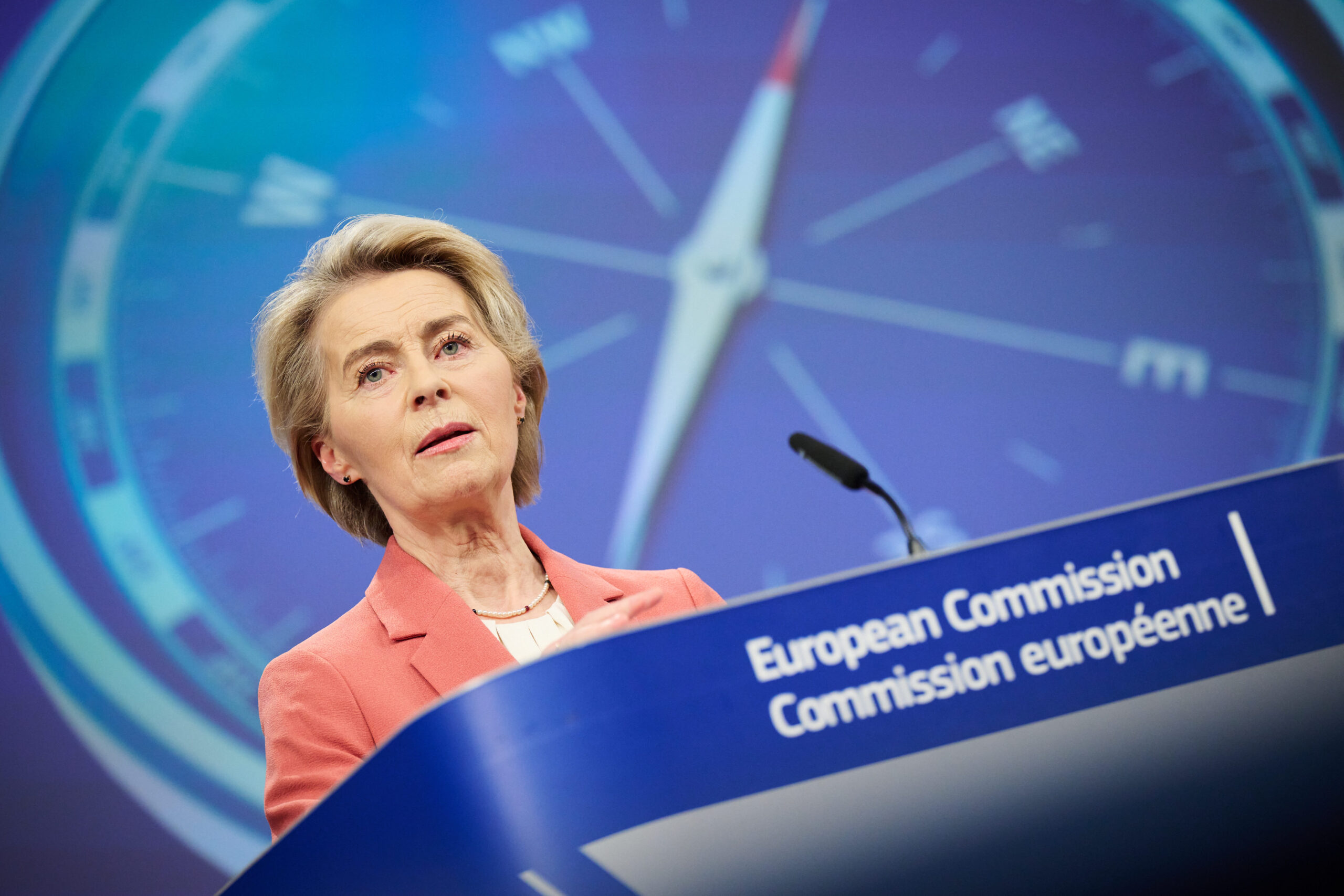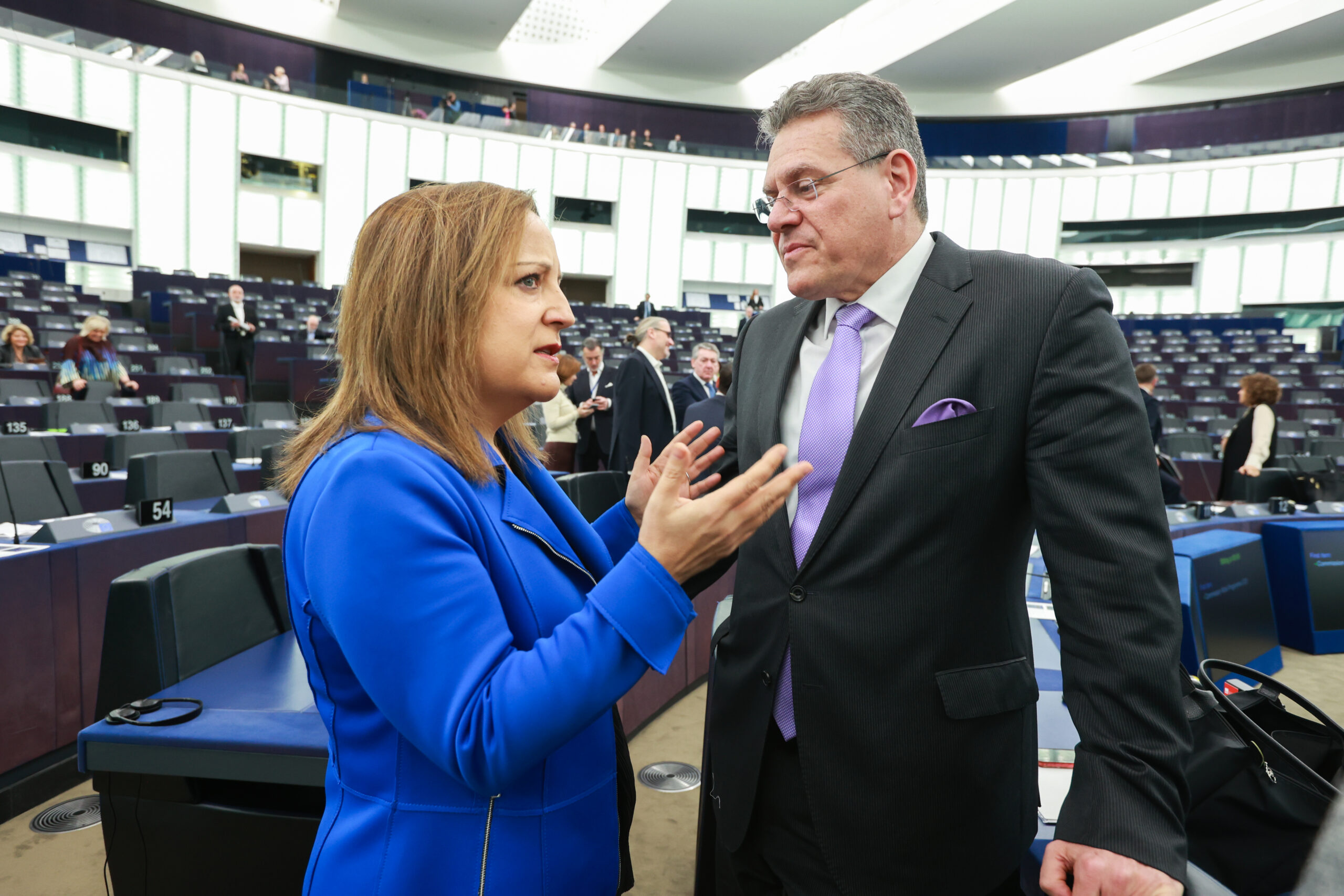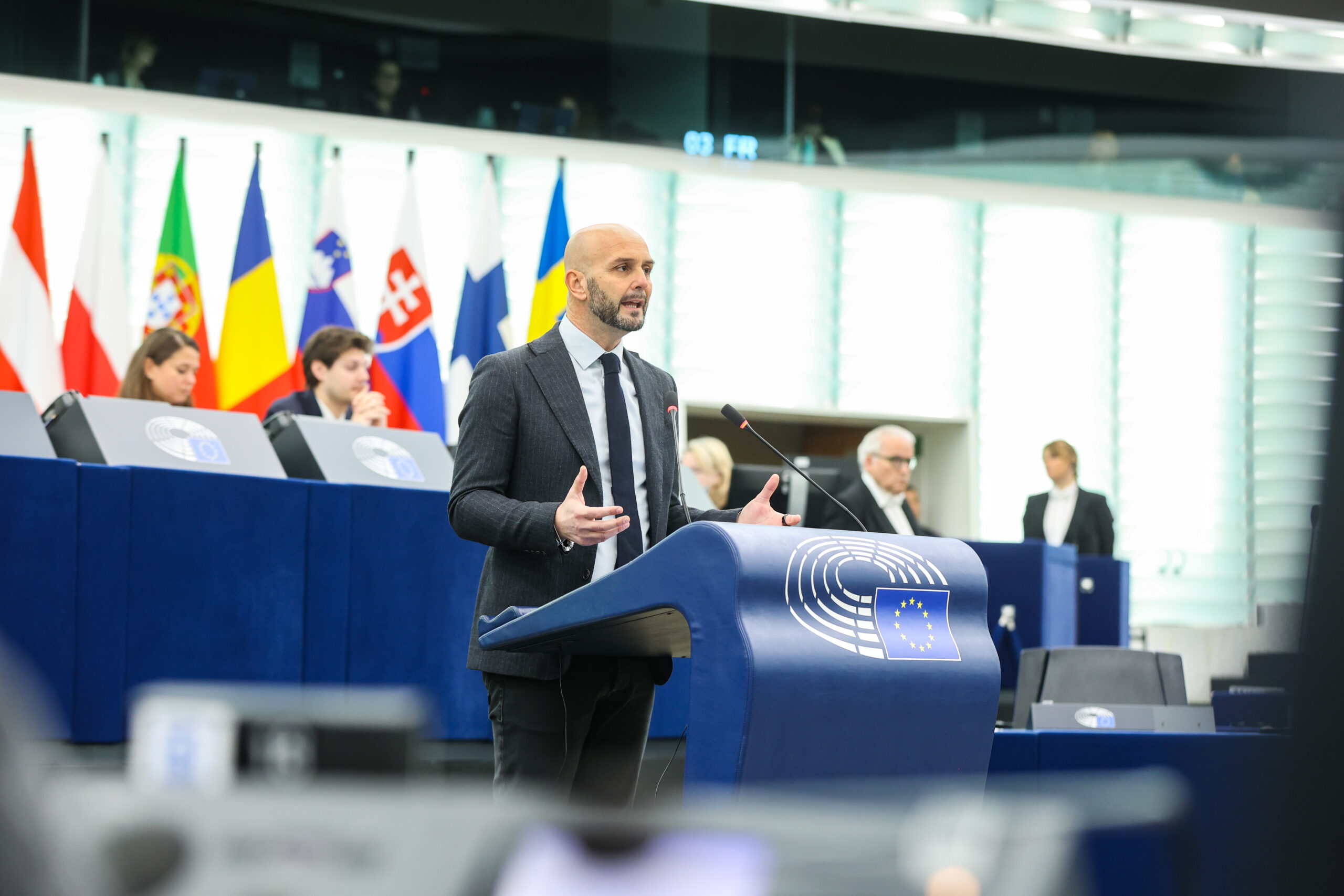From the Correspondent in Strasbourg – The European Commission’s program for 2025 will be all about simplification. Lightening the regulatory burden, reducing administrative burdens, and reporting for businesses: this is Ursula von der Leyen’s answer to revive European competitiveness. Even at the cost of sidelining some of the principles laboriously established by the green transition. From the European Parliament in Strasbourg, Trade Commissioner Maroš Šefčovič outlines the work plan for the next 12 months, announcing an “unprecedented simplification to unlock opportunities, innovation, and growth.”
In the first year of the legislature that will accompany Brussels to the dawn of the new decade, the EU executive plans 51 initiatives, 11 of which have a “strong” simplification component. In particular, three ‘Omnibus’ packages, through which Brussels will revisit already adopted legislative files. “We come from a period of very intense regulatory activity,” Economy Commissioner Valdis Dombrovskis told reporters, “the accumulation of regulations increases complexity” and ultimately “limits economic potential.
The first pieces of legislation to fall in the name of European competitiveness will be the twin directives on corporate due diligence (CSDDD) and corporate sustainability reporting (CSRD). The first Omnibus package, scheduled as early as Feb. 26, will also revisit taxonomy reporting requirements. According to the European Commission, the broadening of the scope of environmental and human rights compliance by companies across the supply chain “will ensure a better alignment of requirements with investor needs, proportionate timelines, financial metrics that do not discourage investment in small companies in transition, and obligations proportionate to the scale of activities of different companies.”
After that, it will be the turn of the Omnibus to simplify investments and the one dedicated to small and mid-capitalization companies (that cannot be classified as SMEs), which will, among other things, remove “inefficient paper-format requirements in product legislation.” At the same time, the watering down of existing legislation will affect the Carbon Adjustment Mechanism (CBAM) – as Climate Commissioner Wopke Hoekstra already announced – from which Brussels wants to exempt about 80 percent of European companies. Also included in the communication on simplification attached to the 2025 work program is a package on digital and one on the Common Agricultural Policy: the former includes streamlining the law on cybersecurity, while the latter will reduce excessive administrative burdens for farmers and national administrations in management, monitoring, and reporting.

Simplification will be at the heart of the Clean Industrial Deal, the new paradigm with the challenging task of combining decarbonization and competitiveness. If, in 2025, the new EU Pact will lead to the proposal for a Savings and Investment Union and to formalize the goal of reducing emissions by 90 percent by 2040, part of the Clean Industrial Deal “will be to make key industries in Europe more circular and sustainable, while facilitating their management and reducing compliance costs to increase their competitiveness,” the European Commission document says. For example, Šefčovič announced a package for the chemical industry, with a “targeted overhaul” of the Chemicals Regulation (REACH) to facilitate the registration, evaluation, and authorization of chemicals “without compromising safety and environmental protection,” Brussels assures.
The European Commission’s new goal is to cut all administrative costs, not just reporting burdens, by at least 25 percent for large companies and 35 percent for SMEs. Costs that Eurostat estimated to be worth 150 billion euros in the EU in 2022: eliminating a quarter of them would free up resources by 37.5 billion.
“Simplification is not deregulation,” Dombrovskis clarified at the press conference, assuring that the European Commission will continue to “adhere to its own high environmental and social standards” and will not “deviate from its policy objectives,” including those in the Green Deal. ” “We are trying to achieve those goals more efficiently and in a less costly way,” the commissioner added.
Simplification or deregulation? Reactions from political groups

Dombrovkis’ words are unlikely to be enough to reassure the political groups that comprise the majority that supported von der Leyen’s election in July. In particular, the Socialists and Greens have greeted the work program — and its emphasis on simplification — with some skepticism. Iratxe Garcia-Perez, group leader of the Social Democrats, rejected the ‘competitiveness equals deregulation’ equation set out by the European Commission: “The problem of competitiveness cannot be regulation,” she said, warning von der Leyen that she will be able to count on the S&D family “to reduce bureaucracy and simplify” but not to “deregulate and destroy taken for decades.” The Greens’ group co-chair, Bas Eickhout, complained of the mere presence of “simplifying proposals” and the lack of a “vision for the future.”
Among the pro-European groups, the leader of the Renew Liberals, Valerie Hayer, said that the group “supports the work program” but criticized the absence of von der Leyen in the House and, more importantly, denounced “some anxieties about the majorities that will emerge,” urging the president to “take responsibility for the majority that elected her.” Indeed, the Commission’s outlined strategy was also welcomed – not only by the Populars, of which von der Leyen is a member – by the European Conservatives and Reformists (ECR), the group that in July sided against von der Leyen’s confirmation as head of the EU executive but which after a long courtship with the Populars is now fully integrated into the Brussels power games.

The program “includes topics on which we fully agree,” ECR group leader Nicola Procaccini confirmed, citing “the revival of competitiveness, the need for simplification, and the focus on security closely linked to illegal immigration.” The problem for von der Leyen is that for the group, led by Giorgia Meloni ally Procaccini, the Green Deal is nothing more than “the green intoxication of the last legislature,” on which “we must have the courage to change course abruptly.” So, according to the ECR, “woke initiatives are still largely present in the Commission’s work program.” The warning from the right is the same but the opposite, “In the first case, we will be largely constructive; in the second, we will fight,” Procaccini stressed.
The president of the European Commission, who has never clarified the boundaries of her majority, is pulled in opposite directions: on one side by the Socialists, on the other by the Conservatives. On closer inspection, the work program for the first year of her term only confirms her ambiguity.
English version by the Translation Service of Withub

![La presidente della Bce, Christine Lagarde, nell'Aula del Parlamento europeo [Strasburgo, 10 febbraio 2025]](https://www.eunews.it/wp-content/uploads/2025/02/lagarde-aula-350x250.png)



![[foto: imagoeconomica, rielaborazione Eunews]](https://www.eunews.it/wp-content/uploads/2025/01/stop-burocrazia-350x250.png)



